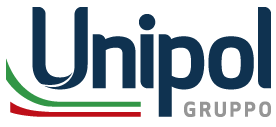Human Rights
The Group has set out its principles and guidelines to manage the human rights impacts of its business activities in the Code of Ethics and Sustainability Policy, in accordance with the undertakings taken on by joining the Global Compact of the United Nations and UNEP FI Principles for Sustainable Insurance and UN Principles for Responsible Investment.
The commitment to human rights was explicitly incorporated in many of the ESG policies that integrate the ESG factors into the business activities, as specified in the Life/Non-Life underwriting ESG Policy in the Guidelines for responsible investing and in the Supplier Code of Conduct.
The risks connected with determination of the Negative Impacts on Human Rights, along with other ESG risks, are incorporated into the ERM framework and included in the classification system of the common risks for the entire Group, defined by the risk management policy.
The identification and assessment of the current and potential negative impacts on Human Rights are subject to a systematic, structured and regularly repeated process that calls for internal analysis tools and the incorporation of external sources to ensure broad, prompt oversight (the “identification and evaluation process”).
Unipol uses these evaluations to identify its priorities in terms of the prevention and mitigation of the negative impacts on Human Rights that could be linked to its operations and its products and services in accordance with the severity and probability of negative impact.
Even though all the areas are treated fairly, and efforts are made toward identifying all the potential breaches, Unipol focuses on human rights issues where there could be the worst possible negative impacts.
The activities under observation with different areas of impact are set out below:
Direct Impacts
- Relations with Employees and Workers
- Relations with Customers
- Relations with Agents, Brokers and Business Associates
Indirect Impacts
- Insurance Customers
- Investments Relations with Agents
- Relations with Suppliers and Business Partners
The Group adopted, or is in the process of adopting, further preventive or corrective measures besides the above-mentioned policies and Codes, in all the various areas. These measures include:
- Organisation, Management and Control Model (MOG) and implementation of Procedure for reporting breaches (whistleblowing) that encourages employees to make reports about unlawful behaviour governed by Decree 231/01, i.e. actions or facts that could breach the Organisation, Management and Control Model (MOG);
- industry policies and agreements and additions that guarantee healthcare and financial services to employees, trade union representation and the tackling of any types of discrimination;
- Policy on the protection and value of personal data and further internal rules in this area;
- Procedures relating to the performance of clinical activities and Procedure to manage clinical risk;
Unipol reports the results reached in the protection of human rights in terms of risks and impacts identified, evaluation activities and prevention and mitigation actions and monitoring mechanisms in the non-financial declaration contained in the Annual Integrated Report and the Sustainability Report of UnipolSai.
As part of its ongoing efforts to structure its due diligence approach, the Group is committed to producing an annual summary report of the results of the systematic application of due diligence to ESG issues, with particular attention to human rights. Specifically, the areas of human rights violations such as forced labor, human trafficking, and child labor are not subject to evaluation, as they are deemed irrelevant considering the industry and operational contexts in which the Group operates, as well as the stringent regulations present at both international and national levels*.
*among others: (i) International Labour Organization Conventions, (ii) the Protocol to Prevent, Suppress and Punish Trafficking in Persons, Especially Women and Children, supplementing the United Nations Convention against Transnational Organized Crime, (iii) the United Nations Convention on the Rights of the Child, (iv) the Council of Europe Convention on Action against Trafficking in Human Beings, (v) the Italian Constitution, (vi) the Penal Code, (vii) Law no. 300/1970, the Workers' Statute, (viii) Legislative Decree 23/2015 (Jobs Act), (ix) Legislative Decree 231/2001 on the administrative liability of entities, (x) Legislative Decree 24/2014 implementing the directive on preventing and combating trafficking in human beings, (xi) Law no. 977/1967 and subsequent amendments on the protection of child and adolescent labor, (xii) Law 196/1997 on the promotion of employment, (xiii) Law no. 228/2003 containing measures against human trafficking, and (xiv) national collective bargaining agreements for the various relevant sectors.


